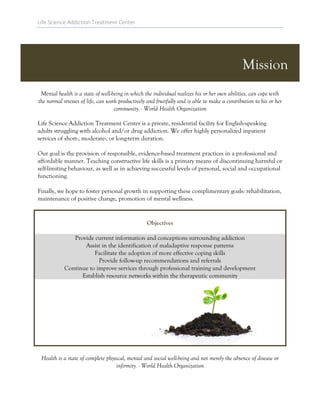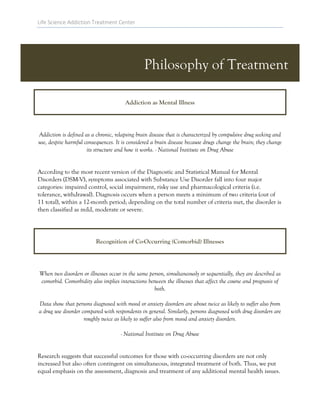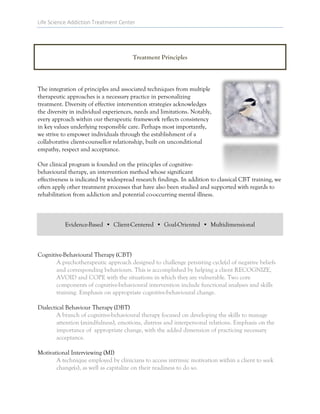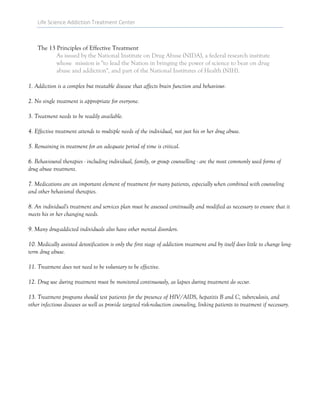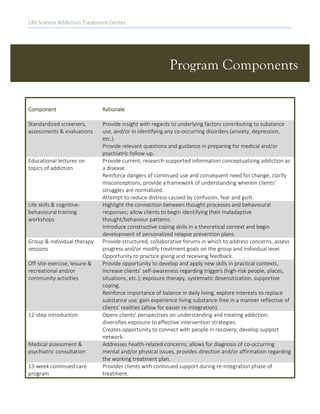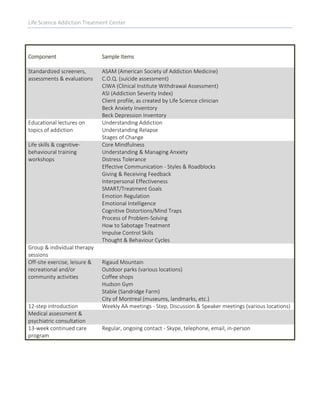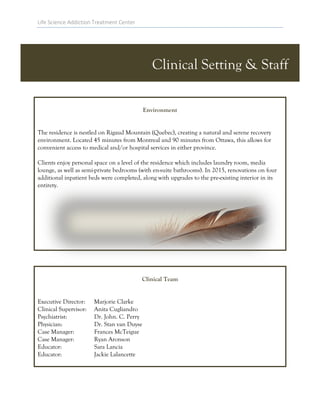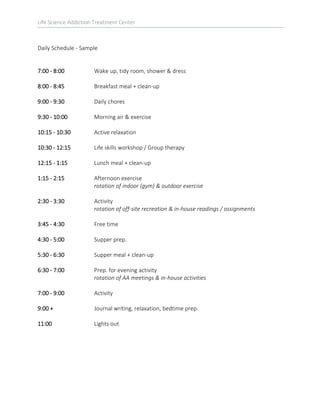The Life Science Addiction Treatment Center is a private residential facility that offers short, moderate, and long-term inpatient treatment for adults struggling with alcohol and/or drug addiction. Its mission is to provide evidence-based treatment in a professional and affordable manner using a personalized approach. The treatment program utilizes principles from cognitive behavioral therapy and other therapeutic models. It offers a variety of group and individual therapy sessions, educational workshops, recreational activities, and medical and psychiatric support to help clients develop coping skills and achieve rehabilitation and wellness goals. The facility is located in a serene natural setting near Montreal, Quebec and employs a multidisciplinary clinical team.
![Life Science Addiction Treatment Center
Life Science Addiction
Treatment Center
[Pick
the
date]
Program Overview
Mission
Philosophy of Intervention
Program Components
Clinical Setting & Staff
T: 450.451.9995 / E: info@life-science.ca / W: life-science.ca](https://image.slidesharecdn.com/96110160-15b1-4bc0-b2af-1663278e40fb-151023224546-lva1-app6892/75/Program-Overview-1-2048.jpg)
